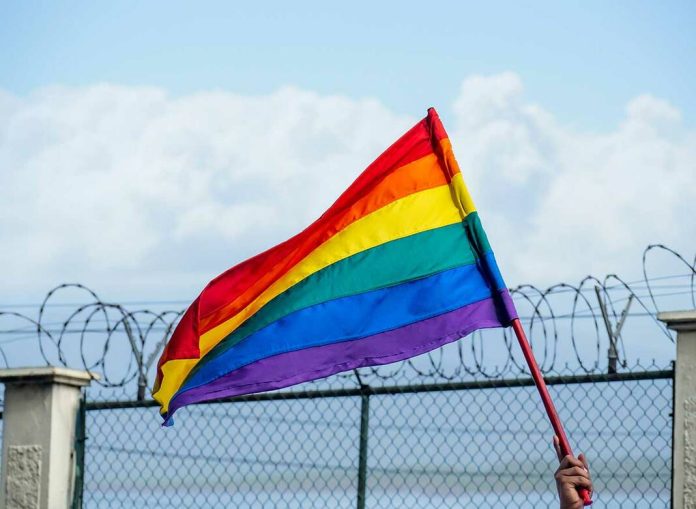A federal judge issued a preliminary injunction on Tuesday halting a statewide ban on gender-affirming procedures for those incarcerated by the Indiana Department of Corrections.
U.S. District Court Judge Richard Young granted to motion, presented by the ACLU of Indiana, in a lawsuit concerning Autumn Cordellioné’s access to gender-affirming surgery while incarcerated.
“Today marks a significant victory for transgender individuals in Indiana’s prisons. Denying evidence-based medical care to incarcerated people simply because they are transgender is unconstitutional. We are pleased that the Court agreed,” said Ken Falk, the ACLU’s legal director, in a statement.
A 2023 law prohibits spending any state or federal funds on such health care, even if recommended by a provider, though access to hormonal therapy is still allowed. In 2023, roughly 36 people were receiving hormonal therapy, according to testimony, but none had received a gender-affirming surgery.
However, the filing indicates that two transgender IDOC prisoners were approved for surgery before the July 1, 2023 law went into effect and had surgeries at Eskenazi Hospital in Indianapolis. Tuesday’s court filing doesn’t specify how the costs associated with those surgeries were covered.
Cordellioné requested her gender reassignment surgery in 2022, providing follow-up information in the months prior to the state’s new law, according to the filing.
Background from the ruling
Cordellioné, a transgender woman, is currently being held in a male prison and has received hormonal therapy since 2020. Her court filing claimed the prohibition on gender-affirming surgery violated her right to be free from “cruel and unusual punishment under the Eighth Amendment” and violated the Fourteenth Amendment’s Equal Protection Clause.
The 42-page ruling from Young found that Cordellioné had established that “gender-confirming surgery is a medically necessary treatment option for some individuals with gender dysphoria” and that she qualified to receive that care.
Much of the evidence cited and presented in the March hearing stems from medical testimony and academic articles presented by the state. Young agreed to strike some of these filings from the court record, since they didn’t come from the state’s expert witnesses.
“While some transgender persons are able to be comfortable with their gender identity without surgery, for some, nonsurgical treatments are not sufficient to relieve their severe gender dysphoria,” Young wrote, citing standards established by the World Professional Association for Transgender Health.
Some transgender women, for example, might try to remove their own testes and penis via “self-surgery,” Young added.
“When gender dysphoria remains marked and sustained, it is medically necessary to provide the surgery … Without such surgery, a gender‐dysphoric person may suffer increasingly debilitating symptoms of anxiety, depression, hopelessness, suicidal ideation, and other manifestations of psychological decompensation and may resort to suicide,” Young wrote.
Cordellioné has a history of both self-harm and suicide attempts, as detailed in the court filing, including attempts to remove her genitals.
“… For these individuals, surgery is medically necessary and is recognized as such by the American Medical Association, the American Psychiatric Association, the American Psychological Association, the American College of Obstetricians and Gynecologists, and the World Health Organization, among others,” Young said.
Young went on to cite studies finding high acceptance rates and greater life satisfaction for transgender people who access gender-affirming surgeries. However, like with all surgeries, informed consent must be part of the process, Young added.
Currently, IDOC covers surgeries that include the removal of sexual reproductive organs for cisgender prisoners, Young observed.
Cordellioné reported that her “gender dysphoria is getting worse” and seeks gender-affirming surgery as soon as possible, which she believes “would alleviate her gender dysphoria and allow her to live without constant thoughts of harming or killing herself.”
” … the court believes that Ms. Cordellioné feels great distress concerning her genitalia and credits her belief that gender-affirming surgery would alleviate some of the pain she experiences from her gender dysphoria and would reduce the likelihood that she engages in self-harm or tries to commit suicide,” Young wrote.
Young notes that IDOC’s own policy allowed prisoners to be evaluated and approved for gender-affirming surgeries prior to the General Assembly’s intervention, and the agency didn’t alter its stance because of changes within the medical community.
Young’s ruling orders a 90-day review of the injunction until surgery is provided to Cordellioné.
By Whitney Downard — The Indiana Capital Chronicle is an independent, not-for-profit news organization that covers state government, policy and elections.





